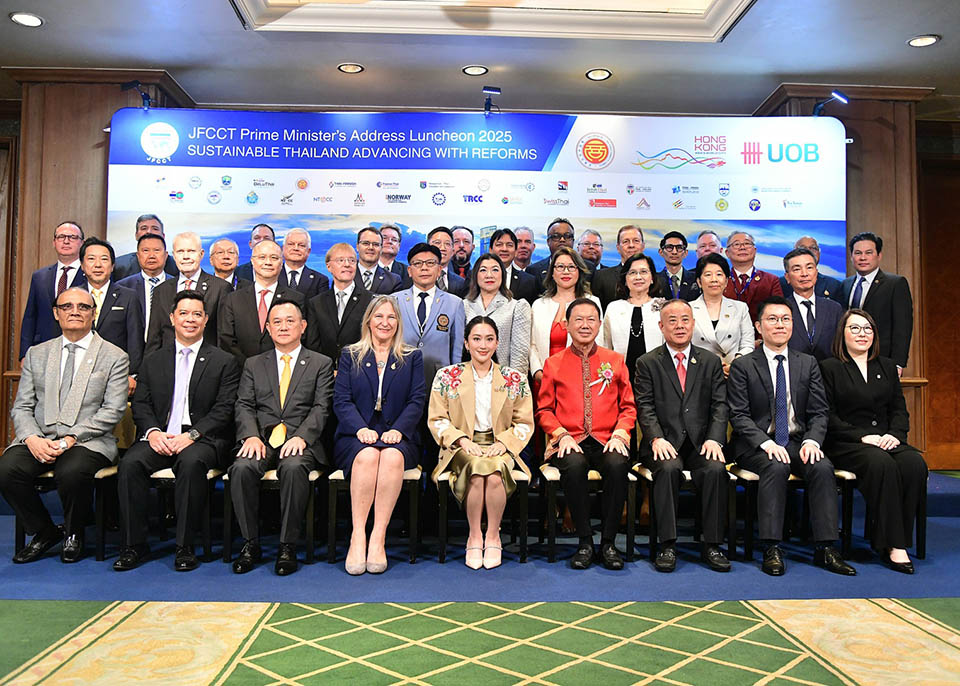
BANGKOK, Thailand – Prime Minister Paetongtarn Shinawatra has outlined her vision for economic growth, saying that the Government aims to transform traditional economic growth into sustainable growth through the adoption of the “Bio-Circular-Green” (BCG) Economy Model.
The Prime Minister spoke about the issue at the JFCCT Prime Minister Address Luncheon 2025, under the title “Sustainable Thailand – Advancing with Reforms.” The event was organized by the Joint Foreign Chambers of Commerce in Thailand (JFCCT) on 14 February 2025 at the Grand Ballroom, Grand Hyatt Erawan Bangkok.
Government Spokesperson Jirayu Houngsub said that, in her address, Prime Minister Paetongtarn stressed the importance of cooperation between the public and private sectors in driving sustainable growth in order to enhance Thailand’s competitiveness and achieve long-term success in the rapidly changing global economy.
The Prime Minister cited the BCG Economy Model as a pathway for the efficient use of natural resources, with an emphasis on innovation and environmental sustainability, covering such major industries as agriculture and food, healthcare and biotechnology, energy and materials, tourism, and the creative economy.
As for international cooperation to drive sustainable development, the Government stressed its commitment to achieving the United Nations Sustainable Development Goals (SDGs) by 2030. According to the SDGs Index 2024, Thailand is ranked 45th in the world and third in Asia. It has come first in ASEAN for six consecutive years, from 2019 to 2024.
In 2024, Thailand was invited to join the accession process taking steps toward Thailand’s membership in the Organization for Economic Cooperation and Development (OECD). This was a result of its various cooperation projects with the OECD, such as the promotion of responsible business operations and the strategic support for science, technology, and innovation for carbon neutrality. These efforts reflect Thailand’s commitment to collaborating with the international community in driving sustainable development on a continual basis.
Moreover, Thailand’s national power development plan, which was approved in 2018, set a goal to increase the share of renewable energy generation to at least 50 percent by 2040. The Government is determined to promote economic growth, together with environmental protection, in order to build a better and sustainable future for everyone. (PRD)










